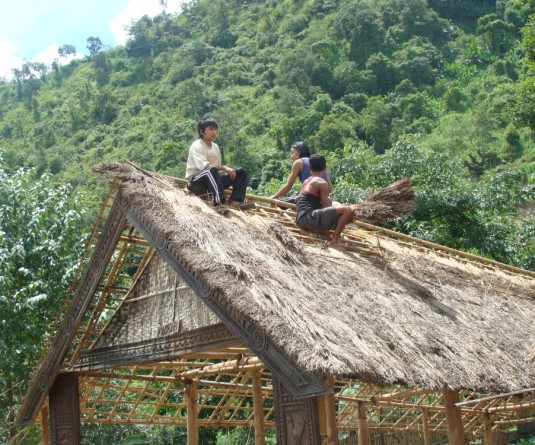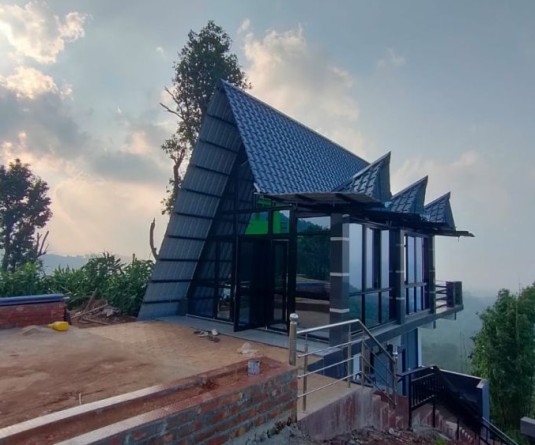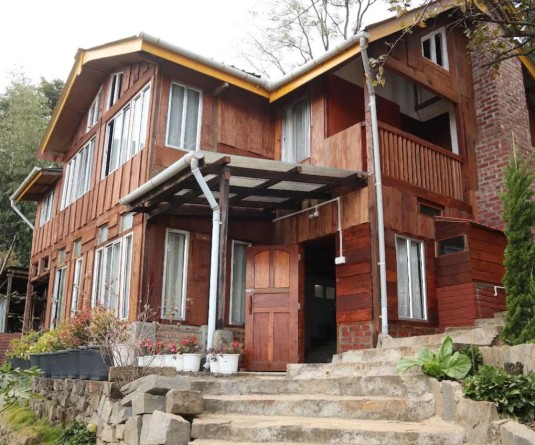A young child is seen carrying a basket load of firewood, commonly used as a daily fuel by many, in a village in Zunheboto District. Women and children face the biggest brunt of “unfreedom” in the lack of any coherent form of development in Nagaland State.
Abokali Jimomi
Dimapur | February 14
Dimapur | February 14
What is the meaning of development? Is increase in income the purpose of development? Who defines development for us and for whose benefit?
According to Economist and Nobel laureate, Amartya Sen, freedom is both the primary means and end to development. Economic growth is not the end goal; rather development is viewed as a realization of freedom, about expansion of capabilities, “the enhancement of freedoms that allow people to lead lives that they have reason to live.”
He argues that “development requires the removal of major sources of unfreedom: poverty as well as tyranny, poor economic opportunities as well as systemic social deprivation, neglect of public facilities as well as intolerance or overactivity of repressive states.”
“Our State is backward and underdeveloped” is repeatedly hammered into the psyche of every kid who has grown up in Nagaland. Most Naga children are encouraged to study as hard to become a top “Government Officer.” Elders at social and religious gatherings emphasize on how many have passed the UPSC/NPSC, and why every student must keep trying and trying.
Accustomed to this sort of social conditioning, it is understandable why many Naga parents have this mindset. The glory of headhunting conquests is transferred to influential bureaucratic jobs; prestige gained through attainment of new socially-constructed role of the “victorious warrior” seems to hold greater importance than the development of a child’s true potential and capability.
Our “Christian” society has now come to a point where some see nothing morally corrupt or un-Jesus-like about “buying” a Government Post. It also needs inquiring who is selling and why and how many illegal appointments are made.
What is that stronger force that compels us to reject ethics, values and self-respect? Pay a hefty bribe to buy a Government post, to achieve what? - Financial security through salary? What are the salaries ranging from the highest administrative officer to a labourer? Are they entitled only to salaries and allowances or what are their other legal sources of income?
At present, who holds the real power – influence and capital resources such land and access to bulk of the Central Government contracts, schemes and funds -- in Nagaland, besides those who control the consumer goods wholesale market?
One of the main characteristics of an underdeveloped economy is the dependence on government employment– lack of opportunities for enterprise and gainful employment. Inequitable distribution of wealth and income is another feature of a backward economy, where concentrated economic power lies in the hands of a few, while the majority struggle for basic necessities.
What are our un-freedoms? Does our societal arrangement place all individuals as active agents of change rather than passive recipients of dispensed benefits? Who controls the factors of production - land, labour, capital and enterprise in Nagaland? According to Sen, “unfreedom” constitutes denial of political and civil liberties; the deprivation of participating in crucial decision-making processes removes an individual’s rights to freedom.
Many people in Nagaland may view development as construction of roads and RCCs, razing down acres of forest for “developmental activities,” availing of more subsidies and schemes for villagers. If that is development, would it remove the stark inequality of opportunities where the majority live in fear, reduced to resorting to sycophantic tactics, deprived of human dignity? Would it increase the well-being of people at the bottom of society’s pyramid?
The majority is deprived of access even to minimal healthcare: for example, in a true incident encountered recently, a father had to walk over 20km to the nearest town to buy Paracetomal for his sick child. Children (like the one in the photo) engaged in household chores lose playtime essential to social and cognitive development. Till now, our women cannot participate in Village Council meetings to discuss any matter.
When this is our reality –inequality of opportunities and decision-making powers—and the vicious circle continues, who benefits from the “developmental activities” or exploitation of our natural resources, which are also depleting at an alarming rate? The conditions of the majority have to be understood to implement what truly would enhance each person’s self-worth and well-being.






